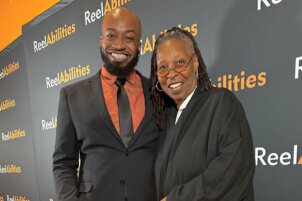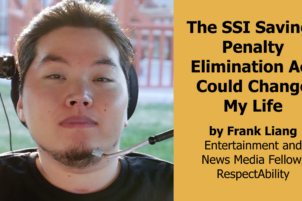Majority of Voters Have a Disability or a Loved One with a Disability
Fully one-in-five Americans have a disability themselves and studies show that most of them want to work. People with disabilities are America’s largest minority group, and the only one that, due to an accident or illness, anyone can join at any time. Indeed, America has 56 million people with disabilities, more than 20 million of whom are working age.
Fifty-two percent of Democrats report that they or a loved one have a disability, and for Republicans, a smaller number of 44 percent report they have a disability. Surprisingly, Independents have the largest number of voters who say they have a disability, with 58 percent saying yes. This shows that swing voters with disabilities and their families are up for grabs.
“Issues of employment among people with disabilities can affect outcomes in competitive races,” Democratic pollster Stan Greenberg, PhD, said in a statement following a bipartisan poll of voters. “This community is far bigger than many people realize, including people in my profession.”

One in five Americans has a disability
Said Jennifer Laszlo Mizrahi, president of RespectAbility, “Introducing policies that create opportunities for employing people with disabilities is not a conservative issue or liberal issue; it is a human issue, and it affects a large portion of the electorate in the United States. The top issue in the disability community is jobs. Government policies that help people with disabilities get and keep jobs are a win-win-win because they allow people with disabilities the dignity and financial benefits of work and also grow our economy and save taxpayer money.”
The bipartisan poll “shows that Americans with disabilities – and those who care deeply about them – are a demographic we need to pay attention to in the future,” Republican pollster Whit Ayres said in a statement.
The early primary states bear out that need.
- Iowa: There are 357,730 Iowans with disabilities. Of that number, 169,300 Iowans with disabilities are of working age. Among this population there is a huge gap in terms of employment compared to their non-disabled peers. Only 44.8 percent are employed compared to 82.1 percent of those without disabilities living and working in the first primary state. There are 12,500 Iowans with disabilities between the ages of 16 and 20. Each year at least 3,125 young people with disabilities are aging out of school.
- New Hampshire: In the Granite State, there are 166,258 people with a disability, of which 77,800 are of working age. Only 41.8 percent of these people are employed compared with 80.3 percent of working age people without disabilities. There are 5,900 New Hampshirites with disabilities between the ages of 16 and 20. Each year at least 1,475 of these young people with disabilities are transitioning out of school and entering the workforce.
- South Carolina: 680,038 people have a disability. Only 30.7 percent of them are employed compared with the 72.7 percent of people without disabilities who are employed. Among those who have disabilities, 15,700 are young people between the ages of 16 and 20. Each year at least 3,925 young people with disabilities leave school and hope they will have a chance to enter the world of work.
- Nevada: 357,035 people have disabilities. Of that number, 171,600 are working age. Only 39.2 percent are employed compared with 73.1 percent of people without disabilities in Nevada. Among Nevadans with disabilities, 8,200 are between the ages of 16 and 20. Each year at least 2,050 young people with disabilities are aging out of the school system.
As the 2016 presidential campaign season gains speed, the nonprofit, non-partisan disability organization RespectAbility is reaching out to all of the campaigns to highlight the importance for all candidates to speak directly to voters with disabilities and their families by offering specific plans for a better future. Already Jeb Bush, John Kasich, Bernie Sanders and Scott Walker have spoken publicly about these issues.
The RespectAbility Report was launched in June of 2015. It offers nonpartisan political commentary on the 2016 U.S. elections with a focus on disability issues. It neither rates nor endorses candidates, but is being watched very carefully by voters with disabilities and their loved ones. Expect to read fact-based updates and analysis from our staff based around the entire country. Staff writers are meeting with the presidential candidates and reporting on their proposals on disability issues.
Chief political writers for The RespectAbility Report include Jennifer Laszlo Mizrahi, former political and training director for Campaigns & Elections magazine and regular columnist for The Daily Record, Huffington Post and other publications, and Lauren Appelbaum, former political researcher for NBC News.
RespectAbility, a nonprofit organization working to empower people with disabilities to achieve the American Dream by entering the workforce, is nonpartisan and neither rates nor endorses candidates. Read The RespectAbility Report: http://therespectabilityreport.org/.
Contact:
Lauren Appelbaum: 202-591-0703, LaurenA@RespectAbility.org








